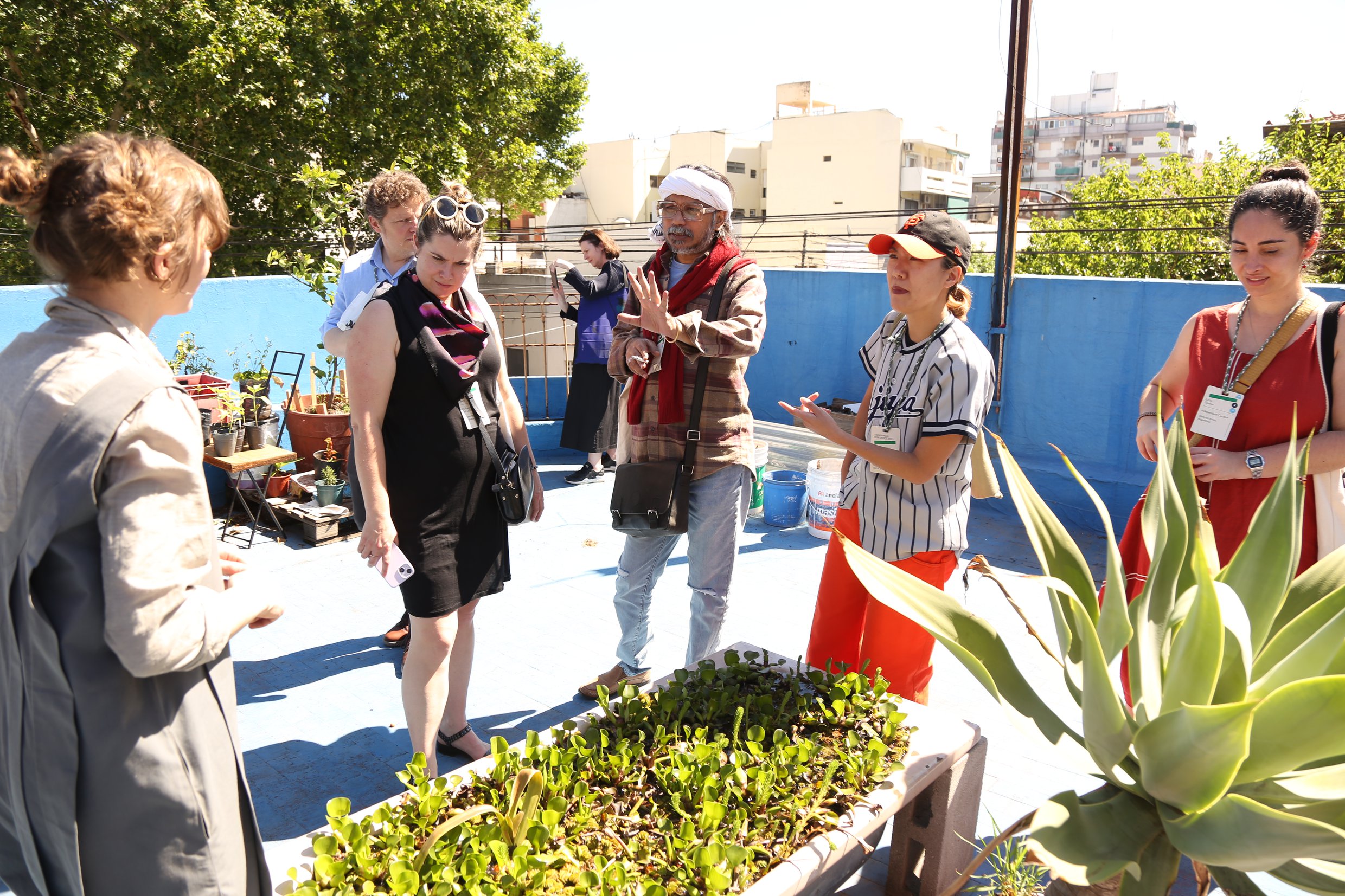CIMAM Celebrates World Environment Day

On June 5, 2024, in honor of World Environment Day, CIMAM reaffirms its dedication to environmental sustainability.
World Environment Day, led by the United Nations Environment Programme (UNEP) and this year themed #GenerationRestoration, is the largest international day for the environment and serves as a crucial reminder of the pressing need to safeguard our planet.
Coinciding with MuseumWeek, an annual social media event aimed at promoting museums and cultural institutions worldwide, today's focus is #BiodiversityMW. This event provides cultural organizations with a unique opportunity to highlight the significance of biodiversity, its diverse nature, and its representation in cultural and artistic expressions.
In addition, this year CIMAM's Annual Conference will focus on "Sustainable Futures: How? When? For Whom?" and the environmental aspect will be addressed on the first day of the conference during the session titled "What is our Agency? The Contemporary Art Museum and Climate Crisis."
CIMAM is proud to share its Immediate Actions, which contribute to environmental sustainability, within its Toolkit on Sustainable Museum Practices.
This section collates a series of actions and solutions that are currently being implemented in the museums and curatorial projects of CIMAM members and the professionals who took part in the survey conducted by CIMAM in 2022 titled "Climate, Social, and Economic Sustainability: How Modern and Contemporary Art Museums Act to Achieve the Sustainable Development Goals." The environmental aspect of sustainability: climate justice and awareness, emissions and waste reduction, and responsible consumption.
CIMAM's Environmental Sustainability Actions
Responsible Consumption and Production
In terms of consumption and production, the immediate actions proposed include extending the duration of exhibitions to more than three and a half months and focusing on showcasing local artists and works from existing collections. Additionally, the use of virtual couriers will be implemented, and the most environmentally friendly options for transporting works of art will be evaluated. The plan is to install international exhibitions remotely without needing artists and curators to travel. There is also a proposal to use reusable exhibition materials such as display cases and frames and to develop temporary modular walls and reusable wooden floors.
In terms of programming, there is a proposal to offer workshops and training programs to raise awareness of the need to protect the environment. Virtual materials will also be produced that are accessible to families, students, and people with disabilities. Recognizing the impact of tourism on sustainability, there is a proposal to raise awareness and schedule traveling exhibits and educational programs in underserved rural and regional areas. Additionally, support for artistic and research projects that address environmental issues and the use of museum collections for research is proposed.
Sustainable Cities, Communities, and Museum Staff
Immediate actions are being proposed in terms sustainability cities, relations with communities and recruitment and management of museum staff, including embracing remote work, also in tasks such as research and viewing artworks for acquisition. The proposals also include inclusive planning by engaging all museum staff and departments in the sustainability planning and execution process. Additionally, there are plans to provide training, consult experts, commission professional reports, obtain sustainability certifications, and apply for grants to support environmental and operational changes and the production of environment-related programs.
Furthermore, there are proposals to promote engagement with broader initiatives by celebrating international environmental days and raising awareness of First Nations' cultural practices, particularly their environmental stewardship. The proposals aim to engage diverse social groups in meaningful activities that contribute to environmental restoration, ensuring that environmental actions also deliver social and economic benefits.
Climate Action
The proposals to tackle Climate Action include minimizing paper usage by adopting low-print policies and transitioning to digital communication. When printing is necessary, eco-friendly options such as recycled paper and eco-ink are preferred, and essential documents are printed double-sided. Museums are encouraged to implement internal waste-sorting guidelines and convert their lighting systems to energy-efficient LED lights. Additionally, they are urged to install photovoltaic panels to harness solar energy.
Other proposals include incorporating renewable energy sources to enhance efficiency, promoting composting in museum restaurants and cafes, eliminating plastic use, and opting for tap water instead of bottled water. Encourage staff and visitors to cycle, which is also suggested, with provisions for bicycle parking and collaboration with other museums to share and reuse resources.
To address water usage, proposals include installing rainwater tanks and reviewing irrigation systems to ensure efficiency and suitability for the season. Waste reduction is emphasized by raising awareness of the waste generated by exhibitions and promoting material reuse.
These proposals aim to inspire hope and responsible consumption by establishing guidelines for sustainable practices in all museum projects and programs.